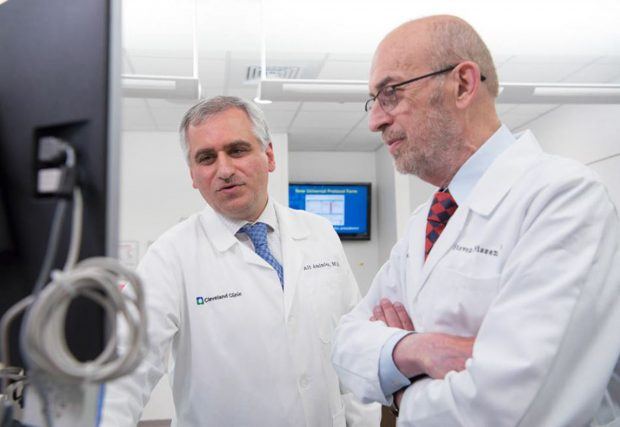Successful and substantial weight-loss intervention before infection associated with 60% lower risk of severe disease in patients with obesity A study by a top American hospital, Cleveland Clinic, shows that among patients with obesity, prior weight loss achieved with bariatric surgery was associated with a 60% lower risk of developing severe complications from COVID-19 infection. The research was published in the journal JAMA Surgery.
Obesity, substantial weight loss and COVID-19
Numerous studies have established obesity as a major risk factor for developing serious illness from an infection of SARS-CoV-2, the virus that causes COVID-19. Obesity weakens the immune system, creates a chronic inflammatory state, and increases risk for cardiovascular disease, blood clots, and lung conditions. All of these conditions can complicate COVID-19.
The aim of this study was to examine whether a successful weight-loss intervention in patients with obesity prior to contracting COVID-19 could reduce the risk of developing a severe form of this disease.
“The research findings show that patients with obesity who achieved substantial and sustained weight loss with bariatric surgery prior to a COVID-19 infection reduced their risk of developing severe illness by 60 percent,” said Ali Aminian, M.D., lead author of the study and director of Cleveland Clinic’s Bariatric & Metabolic Institute. “Our study provides strong evidence that obesity is a modifiable risk factor for COVID-19 that can be improved through a successful weight-loss intervention.”
How the Cleveland Clinic worked this out
A total of 20,212 adult patients with obesity were included in this observational study. A group of 5,053 patients with a body mass index (BMI) of 35 or greater who had weight-loss surgery between 2004 and 2017 were carefully matched 1:3 to non-surgical patients, resulting in 15,159 control patients. Compared with those in the non-surgical group, patients who had bariatric surgery lost 19% more body weight prior to March 1, 2020 (the beginning of the COVID-19 outbreak in Cleveland).
After the COVID-19 outbreak, researchers looked at four COVID-19-related outcomes: rate of contracting SARS-CoV-2 infection, hospitalization, need for supplemental oxygen and severe disease (defined as a combination of ICU admission, need for mechanical ventilation or death).
Although the rate of contracting SARS-CoV-2 was similar between the groups (9.1% in the surgical group and 8.7% in the non-surgical group), participants in the weight-loss surgery group experienced much better outcomes after contracting COVID-19 compared with those in the non-surgical group. Researchers found that patients with prior weight loss surgery had a 49% lower risk of hospitalization, 63% lower risk of need for supplemental oxygen, and 60% lower risk of developing severe COVID-19.
Substantial weight loss surgery
Although the exact underlying mechanisms are not known, these data suggest that patients who underwent weight-loss surgery were healthier at the time of contracting a SARS-CoV-2 infection, which resulted in better clinical outcomes.
“Striking findings from the current study support the reversibility of the health consequences of obesity in patients with COVID-19,” said the study’s senior author, Steven Nissen, M.D., Chief Academic Officer of the Heart, Vascular and Thoracic Institute at Cleveland Clinic. “This study suggests that an emphasis on weight loss as a public health strategy can improve outcomes during the COVID-19 pandemic and future outbreaks or related infectious diseases. That is a very important finding considering it is estimated near 1 billion people have obesity worldwide.”
In closing
In addition, Dr Aminian and Dr Nissen emphasized that findings of this study also underscore the importance of following the public health recommendations. These include, wearing a mask and getting a COVID-19 vaccine for people with obesity, who are at greater risk to develop severe infection.
About Cleveland Clinic
Cleveland Clinic – now in its centennial year – is a nonprofit multispecialty academic medical center that integrates clinical and hospital care with research and education. Located in Cleveland, Ohio, it was founded in 1921 by four renowned physicians with a vision of providing outstanding patient care based upon the principles of cooperation, compassion and innovation. Cleveland Clinic has pioneered many medical breakthroughs, including coronary artery bypass surgery and the first face transplant in the United States. U.S. News & World Report consistently names Cleveland Clinic as one of the nation’s best hospitals in its annual “America’s Best Hospitals” survey.




![women [longevity live]](https://longevitylive.com/wp-content/uploads/2020/01/photo-of-women-walking-down-the-street-1116984-100x100.jpg)











Thanks for sharing this article. Looking forward to reading more from you.